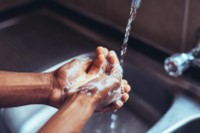Introduction

Water is a basic resource, required by all society to survive and thrive. The importance of water to the development of society is highlighted by the fact that, over thousands of years, the location of human settlements has been driven by access to water. From the establishment of ancient Egypt along the Nile valley and Delta, to the growth of European cities on the banks of the Rhine, humans have relied on water for survival and development. While advancements in science and engineering over the past two centuries has allowed populations to avail of greater water security, in 2016, the United Nations International Resource Panel reported that “without altering current levels of water consumption and pollution, almost half of the world’s population will suffer severe water stress by 2030, thereby damaging the well-being of millions of people”1. The importance of water to the future of the planet is further highlighted in the UN’s sustainable development goals2 which identify:
- availability and sustainable management of water and sanitation for all,
- access to affordable, reliable,sustainable and modern energy for all,
- sustainable consumption and production patterns, and
- conservation and sustainable use of the oceans, seas and marine resources
as priorities for global action. If the world is to stave off a looming water crisis, water use needs to be decoupled from economic growth. There is no single way to do so, rather a multi-pronged approach is required, which will focus on reducing water waste, reducing water pollution, better protection of water-based ecosystems and recognition of the water footprint of different goods and services. These changes are required at a societal level – from big industry all the way down to the individual – and so the education system will be a key player in driving this change.
In line with this, we present a module which aims to develop educators’ and learners’ understanding of water, of its preciousness, of our need to conserve and protect it and the ways in which we might do so. We do this through a STEM lens, where we facilitate learners to develop their knowledge and skills as scientists, while learning about water.
The module comprises three units:
- Unit 1 – Water Sustainability and Awareness (LePlanner link)
- Unit 2 – Water Data (LePlanner link)
- Unit 3 – Water Monitoring and Citizen Science (LePlanner link)
